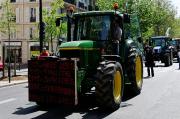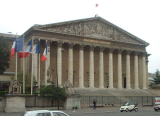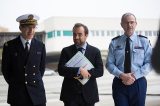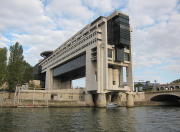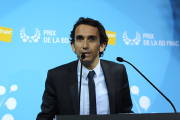
President Frank-Walter Steinmeier became the first German leader to take part in Britain's national service of remembrance on Sunday, 100 years since the end of
World War I.
He laid a wreath at the Cenotaph war memorial in central London alongside British Prime Minister Theresa May, who chose not to join other world leaders marking the centenary of the Armistice in Paris.
Across Britain, individuals and communities held two minutes of silence at 11am (1100 GMT) to remember the end of the four-year conflict which claimed around 18 million lives.
In London, the moment was marked by the chiming of Big Ben, which has been largely silent since renovation work began in August 2017 but which still sounds for important national events.
Prince Charles laid the first wreath of red poppies, Britain's emblem of remembrance, at the Cenotaph on behalf of his mother Queen Elizabeth II, who watched from a nearby balcony.
Steinmeier followed with his wreath, in a unique and highly symbolic act marking the reconciliation between the once warring nations.
Senior royals, diplomats, military leaders and politicians also paid their respects at the memorial to all British and Commonwealth service personnel who have died in combat since 1914.
They were followed by the traditional march past by military veterans, their medals glinting in the sunshine, as a crowd of thousands looked on.
"It's really, really poignant being here," said Sarah Bligh, a lieutenant commander in the Royal Navy who attended the commemorations.
"My great-grandfather served in the First World War along with his three brothers, so I've just been thinking about them a lot."
Toby Foster, a British army captain with 4th Battalion The Rifles, said he would also be thinking about his grandfather and great-grandfather, who were navigators in Lancaster Bombers in World War II.
"But (I) also pause to think about those guys who are still on operations today and just hoping that they're staying safe wherever they are," he told AFP.
The ceremony culminated with a procession by 10,000 people past the Cenotaph.
They were allocated spaces on "The Nation's Thank You" march through a public ballot, and many were direct descendants of those who served in the war.afp








































